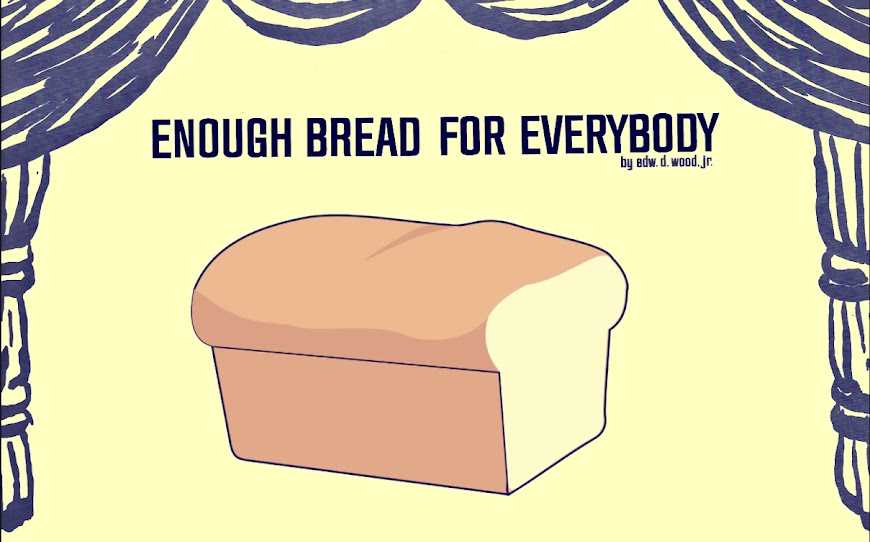 |
| You wouldn't guess it from the title, but "Enough Bread for Everybody" is really about race relations. |
NOTE: This article continues my coverage of Ed Wood's When the Topic is Sex (Bear Manor Media, 2021).
The article: "Enough Bread for Everybody." Originally published in Black and White (Pendulum Publishing), vol. 2, no.1, April/May 1972. Credited to Edward D. Wood, Jr.
Excerpt: "The total earnings for the Negro rose swiftly. In 1962 during July and August the Negro payroll was a minute $3,600. But during that same period in 1963 the rise in the figure started looking like the blacks were in the black . . . $27,000."
Reflections: "Enough Bread for Everybody" will come as an eye-opener to many modern readers, because it proves that the debate over diversity and representation in motion pictures is nothing new. This article was published 50 years ago, but some of the issues in it are still being talked about—and fought about—today.
Put simply, this article is about how Black people (or "Negroes," as Ed puts it) have fought for employment and respect in the motion picture industry over the years. For decades, Black actors and technicians struggled to find work in Hollywood. D.W. Griffith's landmark Birth of a Nation (1915) portrayed its Black characters very negatively, while making the Ku Klux Klan the heroes, but Griffith didn't even employ any actual Black people. As Ed Wood explains, "All the black people were played by black-faced whites." Blacks were similarly denied admittance into the entertainment industry unions.
 |
| An important source for Ed Wood. |
Ed Wood's feelings on this issue are complicated and contradictory. On the one hand, he acknowledges that Blacks have been underemployed and grossly misrepresented in Hollywood. On the other hand, he seems to view the protests over Gone with the Wind (1939) and Song of the South (1946) as examples of censorship. And the NAACP's ban on Black actors playing domestic roles might actually be preventing its members from finding employment! Furthermore, he suggests that any political pressure group, including the NAACP, will inevitably demand some form of censorship from the media.
That's why I say "Enough Bread for Everybody" is a shockingly current article, despite being from a half century ago. Gone with the Wind and Song of the South remain highly controversial today, and social media is consumed with the topic of whether so-called "political correctness" constitutes censorship. The most optimistic part of the article is the title. Eddie seems to be saying that, ultimately, motion pictures generate enough money for people of all races and creeds.
I've said that some of the articles in When the Topic is Sex are vague when it comes to names, dates, titles, etc. That's not the case here. "Enough Bread for Everybody" names plenty of actors and movie titles, including at least one film I'd never heard of: Curtis Bernhardt's comedy Kisses for My President (1964), featuring Polly Bergen as America's first female Commander-in-Chief. Time seems to have forgotten this movie, but Ed deems it noteworthy that the producers hired "40 Negroes."
Also of note here is that Ed Wood repeatedly cites a book called The Face on the Cutting Room Floor: The Story of Movie and Television Censorship (1964) by Murray Schumach. In a great deal of his nonfiction, Ed seems to be "winging it." But, when the situation called for it, he would actually do a modicum of research. I'm guessing Eddie cribbed quite a bit from the Schumach book when writing this article.
Next: "Book Reviews" (1969)

No comments:
Post a Comment